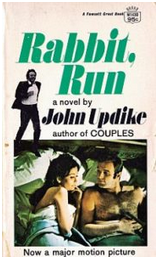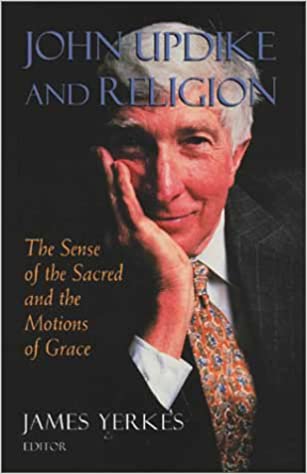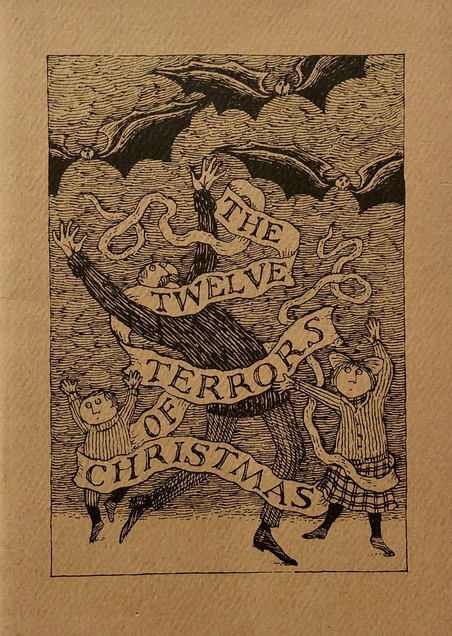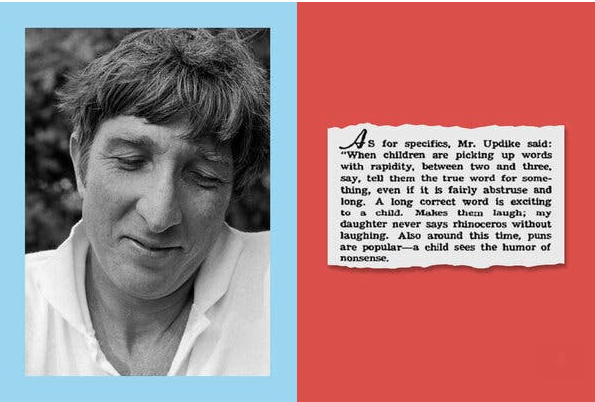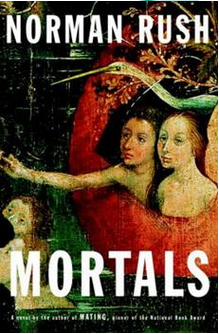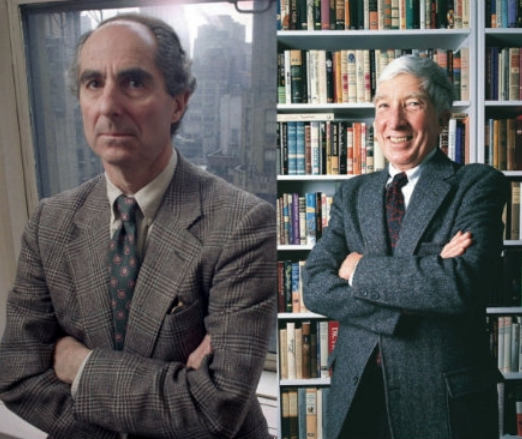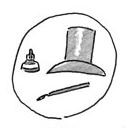Reading early reviews of now-acclaimed novels is always a fun pastime, and Literary Hub tickled readers with reprinted excerpts from David Boroff’s Nov. 6, 1960 New York Times review of Rabbit, Run, along with a cheerily tawdry cover of a reprint edition of the novel:
“At the beginning of this moving and often brilliant novel, ‘Rabbit’ Angstrom quietly watches a group of boys playing basketball. Then, shedding his coat, he joins them at play, demonstrating superbly the virtuosity that eight years earlier had made him the star of his high school team. This opening defines the mood of nostalgia and unquiet adulthood that characterizes John Updike’s Rabbit, Run.
“Rabbit is an older and less articulate Holden Caulfield. An urban cipher, he is trapped by wife, baby, an uncongenial job as demonstrator for a new kitchen utensil.
“‘You get the feeling,’ he says, ‘you’re in your coffin before they’ve taken your blood.’ Like his younger prototype, he is an uneasy picaresque hero who discovers you can run but cannot really flee. And in back of all the restlessness there is an unslaked thirst for spiritual truth.”
“This is the stuff of shabby domestic tragedy—and Mr. Updike spares the reader none of the spiritual poverty of the milieu. The old people are listless and defeated, the young noisily empty. The novel, nevertheless, is a notable triumph of intelligence and compassion; it has none of the glib condescension that spoils so many books of this type. The characters have an imposing complexity.”
“The author’s style is particularly impressive: artful and supple, its brilliance is belied by its relaxed rhythms. Mr. Updike has a knack of tilting his observations just a little, so that even a commonplace phrase catches the light. The prose is that rarest of achievements: a perfectly pitched voice for the subject.
“The treatment of sex commands our attention. For Rabbit, its expression is the final measure of the quality of experience. The author is utterly explicit in his portrayal of Rabbit’s divagations—but the description is as seemly as it is candid, for Mr. Updike is primarily interested in the psychic underside of sexuality. Nevertheless, there are some not easily-ignored footnotes about the erotic sophistication of the post-war generation that will shock the prudish.
“Rabbit, Run is a tender and discerning study of the desperate and the hungering in our midst. A modest work, it points to a talent of large dimensions—already proved in the author’s New Yorker stories, and his first novel, The Poorhouse Fair. John Updike, still only 28 years old, is a man to watch.”

